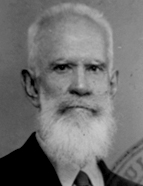

Altamira identified a range of attributes that characterised Spanish civilisation, including “both the well-known commonalities about the Castilian character and the ‘European’ and ‘popular’ characteristics… racial and geographical diversity, austerity, the tradition of communal and customary law, intuitive knowledge, pragmatism, and artistic genius” ("Las historias de España...", 2013, pp. 505 and ff.). For him, the Castilian language held considerable importance — even more so than race — as it was essential to the Spanish people’s identity and central to their historical development. Another key term in his work was patriotism, which, he felt, “brought together his political, social, regenerative, and educational attitudes.” In his writings, he introduced the concept of people's psychology which he saw as a nourishing complement to the idea of civilisation and as scientific support for the concept of the Spanish soul ...)" ( Historiadores en España… , 2013, pp. 87 and ff.)
Politically, Altamira’s ideology could be summarised as a modernising vision inclined towards compromise and gradual evolution towards a modern and impartial state. He assigned law a kind of revolutionary role as the organiser of reform. His vision for the state included the depersonalisation of power, a secular government, clear separation of powers and functions, and rationalised administration. Socially, he championed tolerance, cultural access, and universal suffrage. Altamira was deeply concerned with the accountability of government, believing that while a ruling class should exist, it should govern on behalf of the whole nation, not merely for its own interests. Reflecting on his life, we can trace an evolution beginning in 1898, marked by a regenerative and optimistic reaction expressed through University Extension, patriotism, and the Americanist proclamation. From 1918 onwards, Altamira embraced an idealised vision of a future international order, a goal represented by the League of Nations and the Permanent Court of International Justice. However, with the outbreak of the Spanish Civil War in 1936, he witnessed the collapse of his ideals. After a long period of reflection, he ultimately reaffirmed his commitment to the same values and the model of society he had fought for throughout his life ("Aproximación intelectual e ideológica...", 1987, p. XV). Altamira has been characterised as an "allyophile, pacifist, and advocate for Spanish neutrality during the First World War." Later, he firmly rejected Miguel Primo de Rivera’s coup d'état and was a supporter of the Second Republic, which he accepted without taking on any political office ( Diccionario Akal…, 2002, pp. 75-76). After the Civil War, Altamira's political affiliations were scrutinised by the “Nationalist” faction. On 9 September 1939, the Tribunal Regional de Responsabilidades Políticas de Madrid [Regional Court of Political Responsibilities of Madrid] requested information from the rector of the UCM regarding Altamira’s position on the Nationalist movement and whether he could be considered "affected by the ideals of the New State.” The rector responded that Altamira was "a person educated in the liberal school, associated with the Institución Libre de Enseñanza , and of leftist ideas," and thus could not be viewed as aligned with the ideals of the new regime. This label, unsurprisingly, led him into exile. Altamira’s exile began with the military coup of July 1936, which caught him at his residence in Riaza, Segovia. Taking advantage of diplomatic immunity, he left Spain, settling first in The Hague until 1940, when the Peace Palace closed. With the German occupation of the Netherlands, he moved to Bayonne, where he resided from 1940 to 1944. In 1944, he relocated to Portugal under the diplomatic protection of Argentina, initially with plans to move to the United States; however, he remained in Lisbon for a year, during which time he collaborated for several months with the University of Coimbra. Altamira’s connections with Portugal were longstanding.
This work is financed by national funds through FCT - Foundation for Science and Technology, I.P, in the scope of the projects UIDB/04311/2020 and UIDP/04311/2020.
